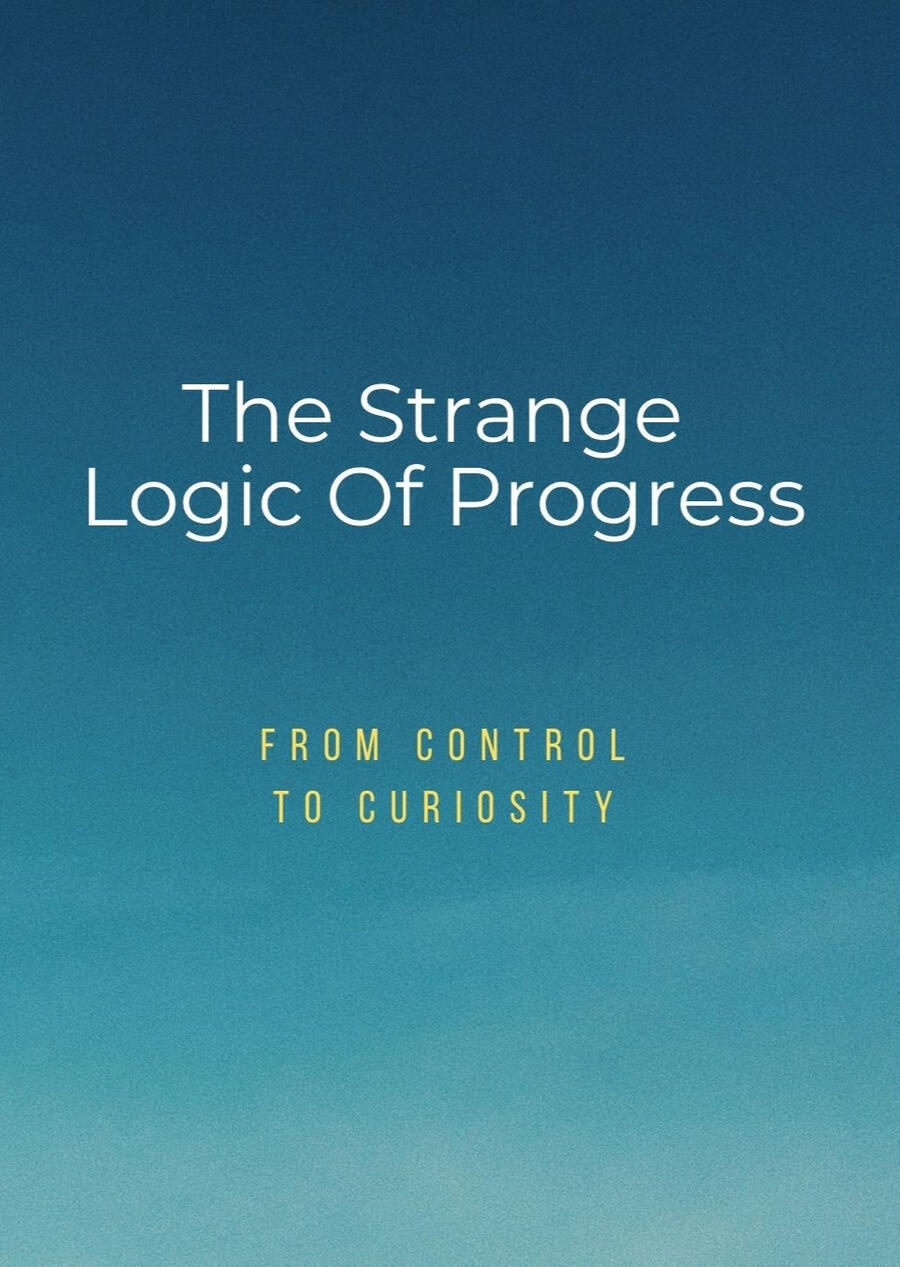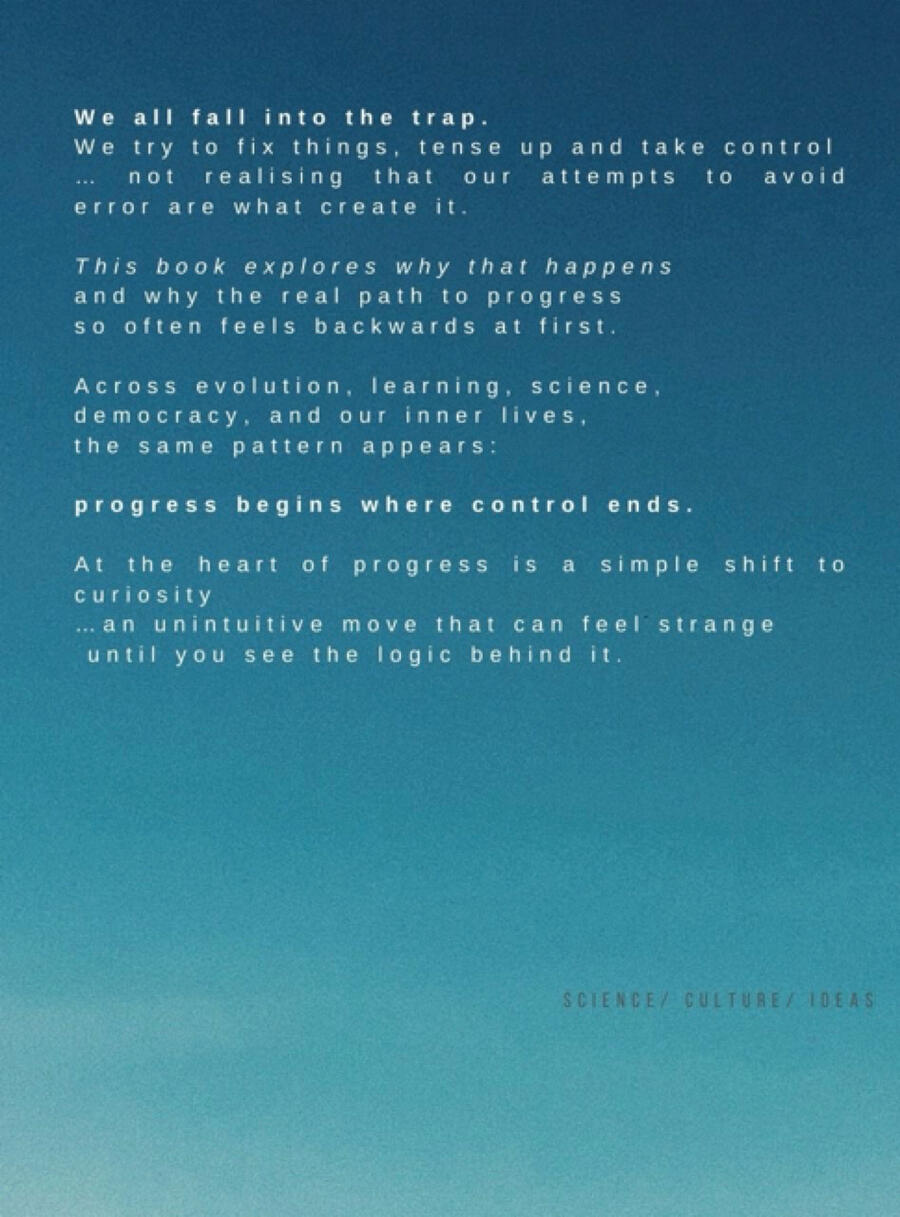The Strange Logic of Progress
From Control, to Curiosity
Sometimes our efforts only make things worse.We rush to fix the problem.
We tense up.
We try harder.But often the struggle is the trap.This book explores a simple but unintuitive shift at the heart of how life, learning, science, and even emotions improve:Progress begins not with control, but with curiosity.
Start here:
Or you can plunge in and buy the full book here ...
Support This Project
If you’d like to support learning creatures - the home of The Strange Logic of Progress - the most meaningful thing you can do is share it.
Tell a friend. Pass it on.
Introduction
The Bird At the Window
A bird sees its reflection in the glass.
It mistakes it for a rival.
Each strike makes the rival seem stronger.
Every collision confirms the need to fight again.From the outside, we can see the futility.
The bird is not trapped by another creature, but by itself.This is what it means to be caught in a reflection.
The harder we fight, the more convincing the reflection becomes.
The more effort we put in, the tighter the trap closes.
The reflection cuts us off from the wider signals all around.
The bird could turn and see trees, air, and open sky,
but its attention is consumed by the false signal in the window.
Our Reflections
Humans fall into the same trap.
An argument is the simplest example.
Each strike at an opponent invites a counter-strike,
and the reflection builds momentum of its own.
Instinct traps us in a conflict neither side wanted.“You always…”
“No, you’re wrong…”Frustration becomes grievance,
grievance leads to certainty,
until dislike hardens into aggression.These reflections don’t stop at home.
A community’s grievance reflected by a leader becomes a movement.
The movement causes alarm, which provokes defence,
which confirms the original grievance.
On and on it goes — each strike bringing another, stronger return.Once you see them, these loops are everywhere —
and not only between people.
Internal Reflections
Just like the bird, we can end up fighting ourselves.Anxiety Spiralling
After sustained anxiety, a thought naturally arises:
Maybe I’m just broken.
That thought feeds the worry, and the spiral tightens.Shame Growing
Ashamed, we try to avoid our problem.
But suppression only increases our fear of it,
and the shame grows.Exhausting and self-reinforcing,
both are a bird at the window.
The Reversal
So what breaks the reflection?
The bird does have a real problem —
but it isn’t the rival in the glass.
The problem is its own efforts to fight.The same is often true for us.
Our difficulty is not the perceived threat,
but our own attempts to overcome it.What helps is not more action,
but something deceptively simple: a pause.
Turn the threat into information.
Stay calm. Allow it.
Perceive it. Exist with it.
Build confidence in our ability simply to remain.We often convince ourselves that the responsible thing is to take a threat seriously —
that attacking it is the adult thing to do.The intuitive path is control — take action!
The strange but liberating path is curiosity — let’s just… wait…
Making Error Safe
The lesson is simple but easily missed.
Without it, we fall into the same traps again and again —
locked into lifetimes of striking at reflections.What the bird teaches us is the same truth every system must learn:
to progress, it must make error safe.This is a lesson we have already learned:
• Dictatorships eliminate dissent. Democracy protects it.
• Dogma attacks criticism. Science seeks it.From condemning error to making it safe.
From control to curiosity.Like the bird, we are only trapped by reflections.
The sky is still there, waiting.
Return to the homepage
Copyright © 2025 L. C. Rowan
This introduction is freely shared in the hope that it spreads. You are welcome to distribute, link, or quote it for non-commercial purposes — with attribution.
Please don’t sell it, alter it, or pass it off as your own.
The Strange Logic of Progress
From Control To Curiosity


The Journey Through the Book …
Section I – The Strange Logic
Part 1 – The Trap
How our instincts can get us stuckPart 2 – The Strange Logic of Progress
The logical solution to the trap
Section II – Where The Logic Comes From
Part 3 – The Logic of Learning
How simple learning mechanisms can scale into flexible intelligencePart 4 – The Source of Error
Why our errors aren’t random — they’re predictablePart 5 – The Discovery of Ignorance
How science and democracy learned to learn
Section III – Applying The Logic
Part 6 – The Logic of Inner Correction
How we improve when wrongness becomes speakablePart 7 – Living The Logic
The reality of life as a learning creature
Return to the homepage